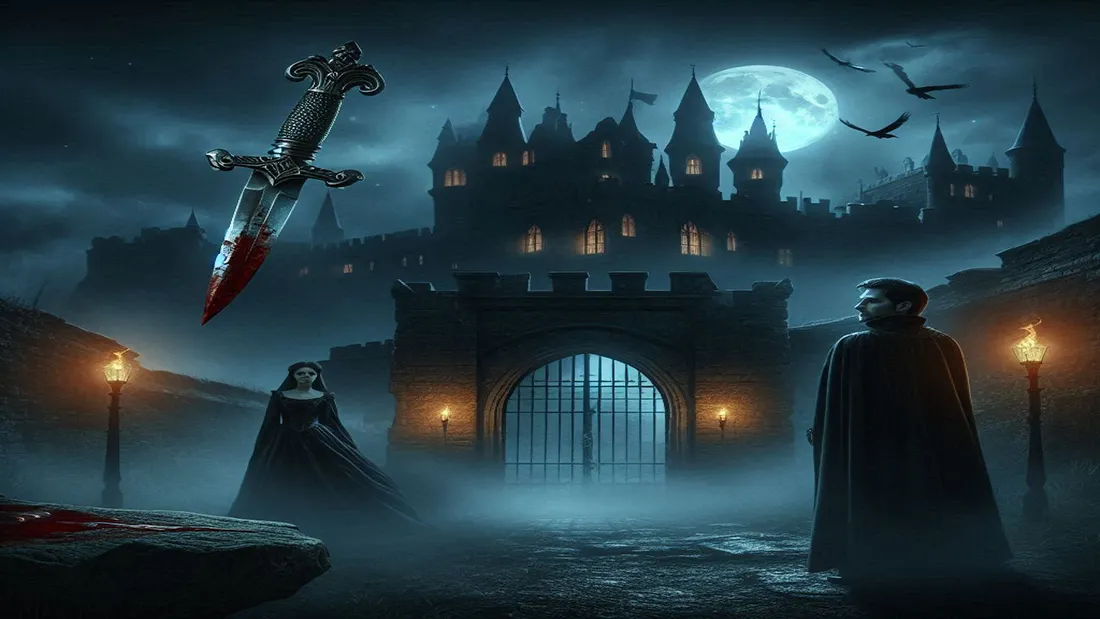Welcome to BD JOBZ PREPARATION, where we provide easy and insightful summaries of literary classics. Today, we delve into Act 2 of Macbeth, one of William Shakespeare’s most famous tragedies. This act marks a critical turning point in the play, as Macbeth makes the fateful decision to murder King Duncan. Packed with tension, supernatural elements, and psychological turmoil, Act 2 sets the stage for Macbeth’s tragic downfall. In this Macbeth Act 2 Summary, we will break down the key events, character reactions, and significant themes in simple language.
Read More: Macbeth Act 1 Summary
Scene 1: Macbeth Prepares for Murder

The second act begins with Banquo and his son, Fleance, walking in the courtyard of Macbeth’s castle at night. Banquo confesses that he has been troubled by thoughts of the witches’ prophecy. When Macbeth enters, Banquo mentions the witches and how their words have stayed in his mind. Macbeth pretends not to think about them but is actually planning to fulfill their prediction.
As Banquo and Fleance leave, Macbeth hallucinates a dagger floating in front of him, leading him toward Duncan’s chamber. The dagger is covered in blood, symbolizing the murder he is about to commit. This hallucination reveals Macbeth’s disturbed mind and foreshadows the violence that is to come. Finally, the sound of a bell, a signal from Lady Macbeth, calls him to action.
Scene 2: The Murder of King Duncan
In this crucial scene, Macbeth returns after killing Duncan. He is overwhelmed with guilt and fear, feeling that he has committed an unforgivable crime. His hands are covered in blood, and he is unable to say “Amen” when he hears a prayer. This shows his immediate descent into psychological torment.
Lady Macbeth, on the other hand, remains calm and in control. She scolds Macbeth for bringing the murder weapons back with him instead of leaving them with the sleeping guards. Since Macbeth is too shaken to return to the crime scene, Lady Macbeth takes the daggers and smears the guards with Duncan’s blood to frame them for the murder.
A loud knocking at the gate interrupts their conversation, and they quickly return to their chamber to pretend that they have been asleep. This scene highlights the contrast between Macbeth’s guilt and Lady Macbeth’s determination.
Scene 3: The Discovery of the Murder
The knocking at the gate continues, and the drunken porter finally opens the door. The porter provides comic relief with his humorous remarks about hell and sinners, momentarily easing the tension before the shocking discovery of Duncan’s murder.
Macduff and Lennox enter the castle, unaware of the crime that has taken place. Macduff goes to wake Duncan and finds his body covered in blood. He immediately raises the alarm, waking everyone in the castle. Macbeth and Lady Macbeth pretend to be shocked and horrified.
In an impulsive act, Macbeth kills the guards, claiming that he did so out of anger for Duncan’s death. This is a crucial moment, as it prevents the guards from speaking in their defense and shifts suspicion away from Macbeth. However, Macduff is suspicious of Macbeth’s actions.
Duncan’s sons, Malcolm and Donalbain, realize that they are in danger and decide to flee. Malcolm escapes to England, while Donalbain goes to Ireland. Their sudden departure makes them appear guilty, which later helps Macbeth secure the throne.
Scene 4: Consequences of the Murder
The final scene of Act 2 takes place outside Macbeth’s castle. Ross and an old man discuss the unnatural events that have occurred since Duncan’s death. They mention that darkness has covered the land during the day, an owl has killed a falcon, and Duncan’s horses have turned wild and eaten each other. These strange occurrences reflect the disorder that Macbeth’s crime has brought to nature and the kingdom.
Macduff arrives and informs them that Duncan’s sons have fled, making them the prime suspects. He also reveals that Macbeth has been named the new king and has gone to Scone for his coronation. However, Macduff chooses not to attend the ceremony, suggesting his suspicion of Macbeth.
Themes in Macbeth Act 2
One of the main themes in Macbeth Act 2 Summary is guilt and conscience. Macbeth is immediately tormented by his actions, while Lady Macbeth remains composed, though this will change later in the play. The theme of fate versus free will is also evident, as Macbeth actively chooses to commit murder rather than waiting for fate to unfold.
Another key theme is the disruption of natural order. The strange events that follow Duncan’s murder symbolize the chaos that results from Macbeth’s ambition. The act also explores deception, as Macbeth and Lady Macbeth try to cover up their crime while pretending to be innocent.
Read More: Summary of Macbeth by William Shakespeare
Act 2 of Macbeth is a thrilling and significant part of the play that highlights Macbeth’s transition from a loyal subject to a ruthless murderer. His descent into guilt and paranoia begins here, setting the stage for further chaos in the following acts. The act also explores the contrast between Macbeth and Lady Macbeth, revealing their different reactions to the crime.
At BD JOBZ PREPARATION, we strive to make complex literature accessible to everyone. This Macbeth Act 2 Summary provides a clear understanding of the act’s major events and themes. Stay tuned for more literary summaries and analysis to help you in your studies and exams!



